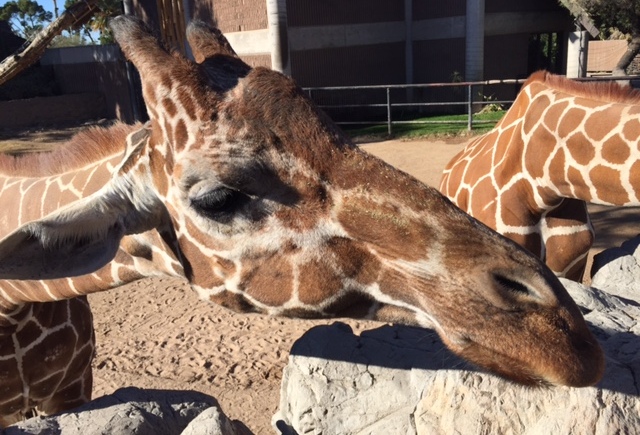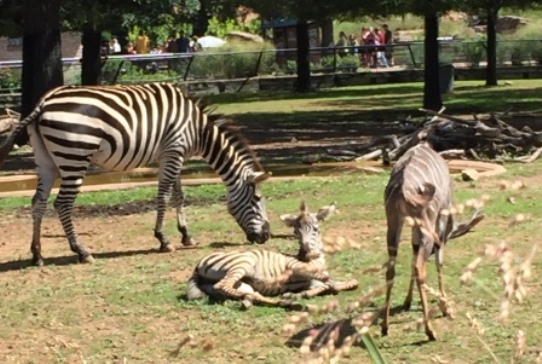 Family Travel Files Ezine Family Vacations Resource Family Travel Files Ezine Family Vacations Resource |
7 Ways to Ensure a Better Day at the Zoo. Each zoo visit presents countless ways educate, entertain and engage. The best zoos facilitate family fun and enable directed learning but the key to success requires a bit of advanced preparation and planning. Like so much in life, less is more. 
While I am a proponent of interactive zoo experiences, to get the most out of a trip to the zoo does not hinge on a personal animal encounter. But having a plan with a small bit of focus will make any day at the zoo better. Because I love shared learning and have successfully practiced it for three decades, I have a few suggestions which reap rewards long after any visit is over. 
1. Decide in advance what your focus is going to be. If it’s the Sahara for example, challenge each family member to offer information about the plants or animals typically found in the area. A little knowledge acquired ahead of time enhance the actual experience. Once at the zoo encourage your children (one at time) to use the zoo’s printed map or app to determine the shortest way to an exhibit area of choice.
2. Practice observation techniques. Use techniques such as standing still, using binoculars, whispering, and avoiding quick movements. Once back home it will be much more fun to pretend to be prairie dog, penguin, leopard or monkey.
3. Practice using the senses. Using sight, sound, and touch to evaluate a place defines a 3-D zoo experience. The aroma of the tropics will be a sharp contrast to the dryness of the Sahara. Touch tanks definitely challenge the senses. Standing still among hundreds of lorikeets will be memorable. I never worked taste into our zoo adventures but I have been told many zoo cafes offer salads that might fit the experience. 
4. Encourage children to ask questions. If you and your child have had opportunity to do a little advanced planning, your child will benefit greatly. Seek out zookeepers or docents and get firsthand information. One question is all that is needed to seal the deal and improve your child’s self-confidence.
5. Look for evidence of family or community. How are we as humans similar or different? What animals travel in a herd? What is a gaggle? What do animals eat and when or where? The observations will make for great dinner conversation in the future. 
6. Make vocabulary building part of the fun. Depending on your area of interest the vocabulary may be extra challenging. Identify words to describe an animal family or group. Words like herd, pride, gaggle or flock will be no brainers. But how about a troop of monkeys, a bamboo of pandas, a huddle of penguins, a crossing of zebras, a warren of rabbits, a leap of leopards, a cling of koalas, a prickle of porcupines, a gaze of raccoons or one of my favorites - a crash of rhinos.
7. Share the planet with your kids. Each zoo whether large or small offers dozens of ways for parents to draw connections to distant places on the planet. For parents interested in raising a citizen of the world, zoo trips are invaluable and do not require a passport. It an ideal way to explain that our planet with all its residents is beautiful because of the many differences. Raising a citizen of the world takes time and energy but it is worth the effort for the future of the planet we all share.
Content and images by Nancy Nelson-Duac, Curator of the Good Stuff for the Family Travel Files. Copyright 2017.
|